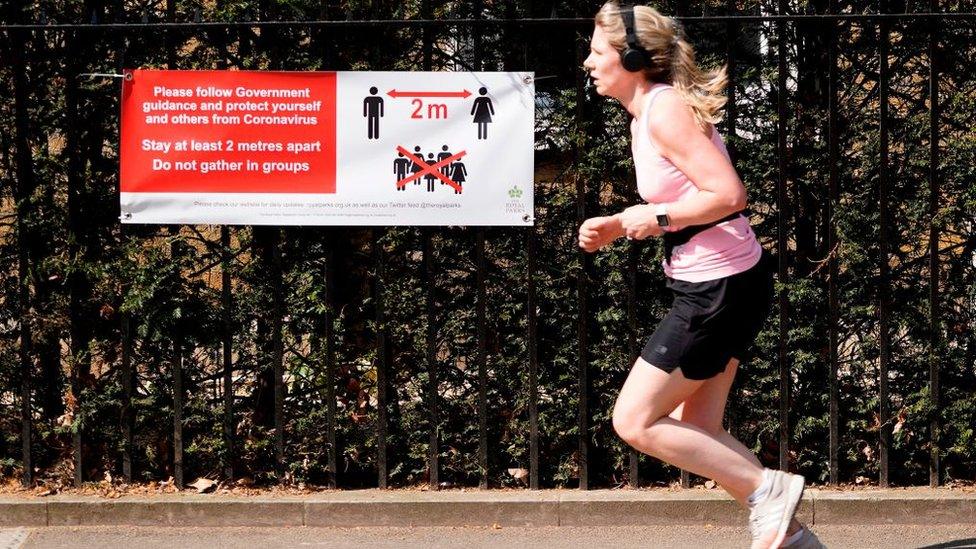Coronavirus: Criteria v calendar in debate on easing NI lockdown
- Published
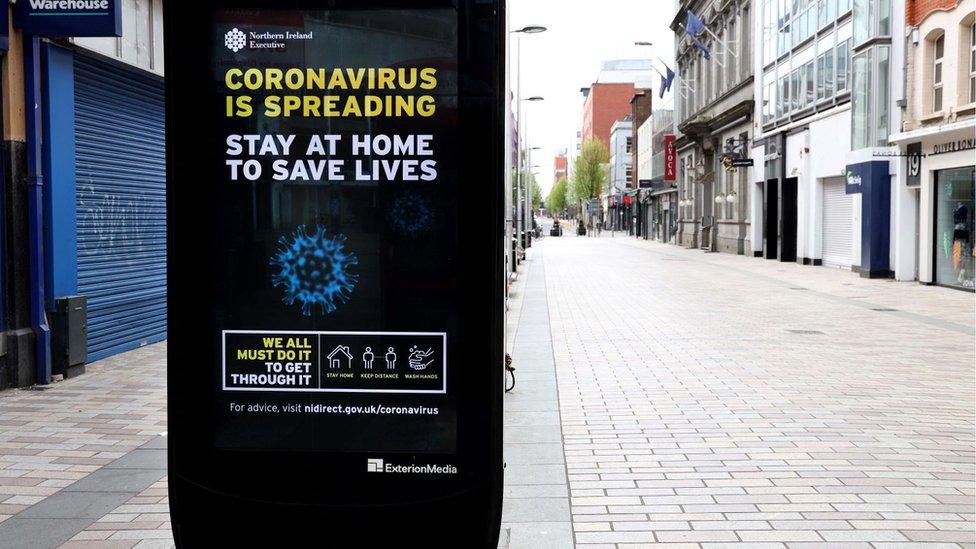
Politicians face a dilemma on deciding when it is safe to ease lockdown rules
This week's edition of BBC Northern Ireland's The View was instructive regarding the dilemma the Executive faces between acting on the advice it is getting from medical professionals and communicating a clear message to business and the wider public about when the economy and society might reopen.
With the R number - the measure of the rate of transmission of the virus - still worryingly high at 0.8 to 0.9, Stormont ministers appear to have united around a cautious approach.
Recent days have not witnessed so many solo runs on calls to reopen churches and garden centres.
Instead, with the situation in our care homes particularly alarming, the Health Minister Robin Swann's analysis that discussion about easing the lockdown was "getting ahead of itself" seems to have won the day, for now.
First Minister Arlene Foster and Deputy First Minister Michelle O'Neill say they differ on many things, but not on extending the coronavirus restrictions, largely as they are, for another three weeks.
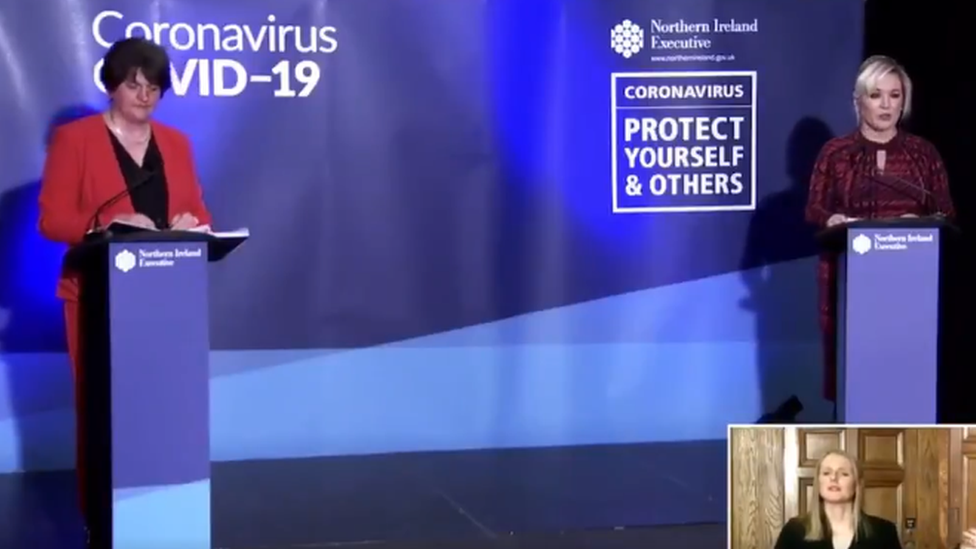
Michelle O'Neill said the Executive is "at one" on how it moves into the recovery phase
The mantra is that any phased recovery plan should be "criteria-led, not calendar-led".
While this makes perfect sense in medical terms, it does not bring any certainty to businesses and other sectors trying to map out their future options.
Notably, all three business representatives interviewed by The View called for a timetable - precisely the approach the Justice Minister Naomi Long had just declined to entertain.
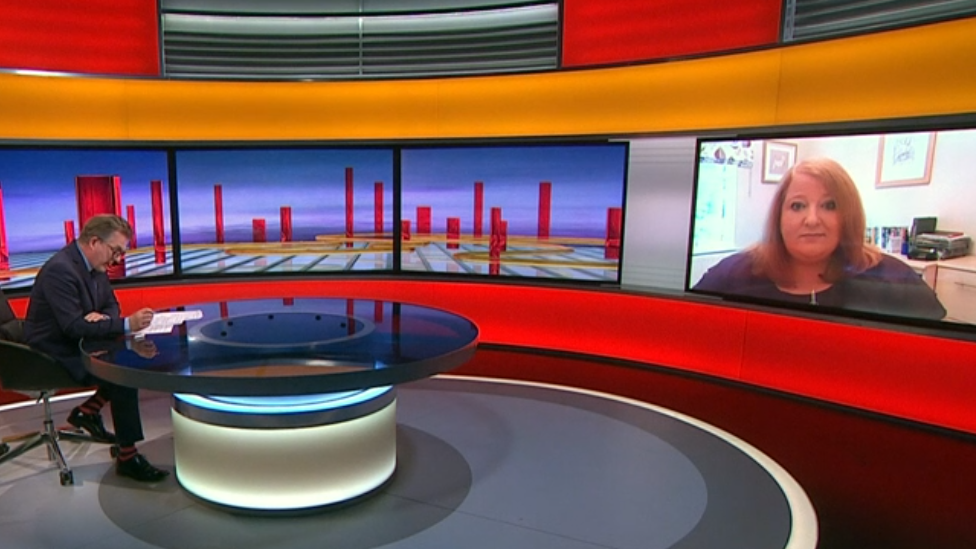
Justice Minister Naomi Long rejected calls for a timetable on The View
Telling an employer or employee you can go back to work when the R number reaches 0.5 or 0.3 (or whichever measure the scientists decide) may make perfect sense.
However, it understandably prompts the question: "And when will that be?"
The difficulty for Stormont - if it sticks to this approach - is that Taoiseach (Irish Prime Minister) Leo Varadkar has already committed, albeit with qualifications, to a five-point timetable.
At the time of writing, we are still waiting to see how Boris Johnson's recovery plan will compare to the Irish model.
Any actions by our near neighbours will inevitably exert pressure on Stormont ministers.
Perhaps that explains why Mrs Foster told BBC Breakfast that our restrictions will remain unaltered, but then felt the need to add the caveat that "nuanced changes" might still be possible.
If those who have committed to timetables find the progression of the disease means they have to go into reverse gear, Stormont ministers might be left looking like the font of all wisdom.
If not, they may appear slow and indecisive, bringing up the rear on issues like face coverings, on which Nicola Sturgeon took the lead a week previously.
I have been asked over Twitter how the scientists measure the R number in Northern Ireland, given at the time I am writing this, we have completed fewer than 35,000 tests?
I am told it is calculated on the basis of tests, positive cases, intensive care admissions and deaths.
You can read more about the R number here and here, external.
Many thanks to all of you who submitted questions to our first two Inside Politics Q&A podcasts on the Upper Bann and North Antrim constituencies.
Our third destination is South Antrim and by the time we record next Monday my guests will have the benefit of knowing exactly what the prime minister's exit strategy looks like.
If you have any questions for our panel of local MLAs, covering either South Antrim or the wider issues raised by the pandemic, you can send them to us over Twitter using our hashtag #bbcip or via our email: Inside.Politics@bbc.co.uk
- Published8 May 2020
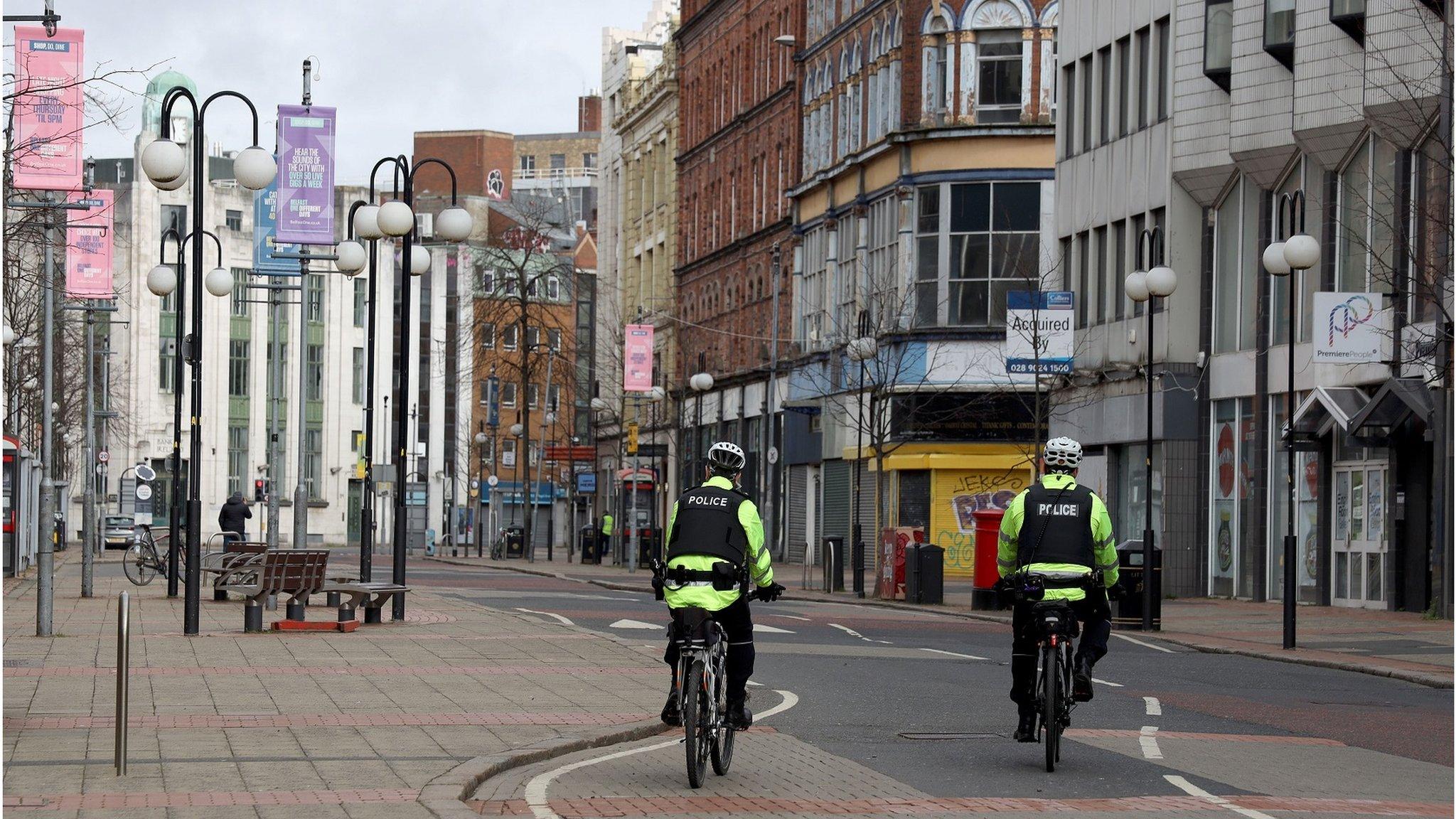
- Published6 May 2020
